

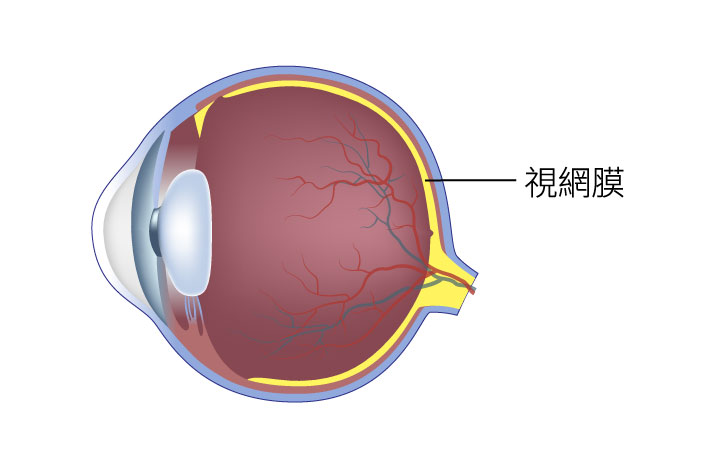
The retina is thin layer of nerve cells which line the inside of the eyeball. When light passes through the eye, it is projected onto the retina. Once the retina has received the image, it is sent to the brain via the optic nerve allowing us to see the world. Like the film of a camera, the structure is responsible for sensing light and producing pictures.
What is Retinal Detachment?
Retinal detachment describes an emergency situation in which the light-sensing neurosensory retina tears from the pigment epithelium before their separation, leading to blindness in severe cases. Deprived of blood and nutrients for a long time, the detached retina loses its normal function, which may lead to permanent vision loss if left untreated.
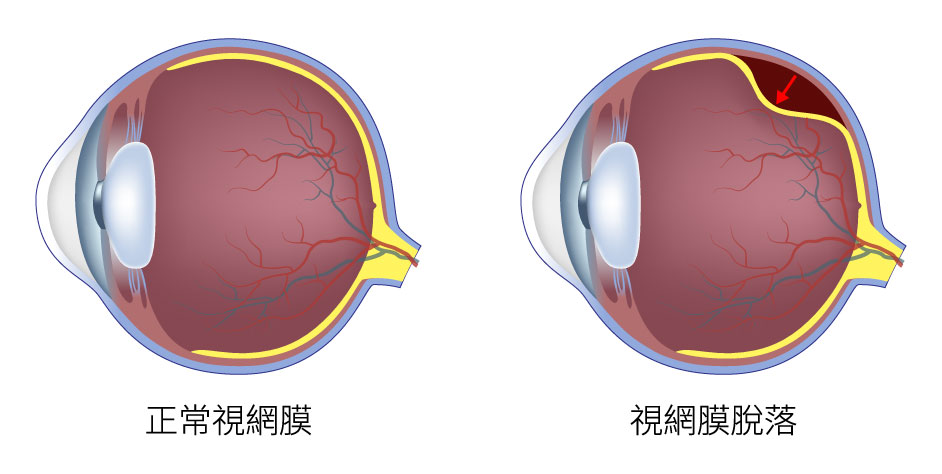
Causes of Retinal Detachment

Degeneration and retinal tear or break

Family inheritance

People with high myopia
(over -6.00D)

Previous eye or head injury

Severe diabetes

Inflammation of the ocular fundus
Symptoms of Retinal Detachment

Flashes of light

Distorted and blocked visual image
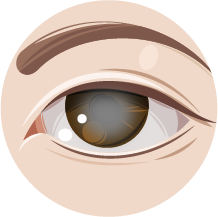
Sudden decline in visual acuity

Lots of new "floaters"
Treatment Methods

Retinal detachment is a serious ophthalmic emergency. Since the chances of it healing naturally are very slim, patients must receive appropriate treatment; otherwise, permanent vision loss may occur.
Pars Plana Vitrectomy (PPV)
Pars plana vitrectomy (PPV) is the primary treatment for rhegmatogenous retinal detachment today. In this procedure, the vitreous is removed using instruments and replaced with a filler, such as saline solution or gas, to reposition and stabilize the retina. This treatment is suitable for patients with extensive retinal tears.
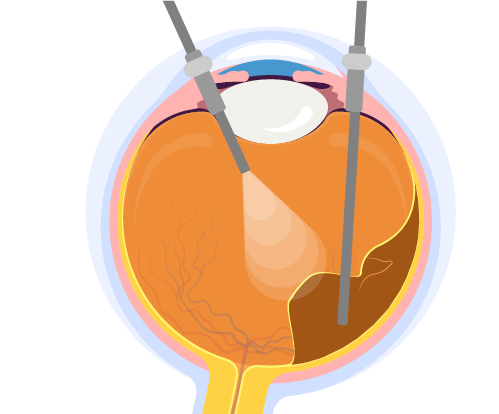
Pneumatic retinopexy
In certain cases of retinal detachment, patients may undergo pneumatic retinopexy, in which a gas bubble is injected into the eye to apply pressure and reposition the retina. This is then supplemented with laser or cryotherapy to seal the retinal tear.
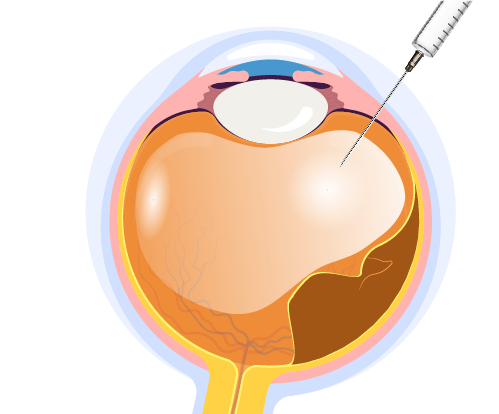
Pneumatic retinopexy
A gel sponge or silicone band is placed on the white of the eye to squeeze the eyeball and push back the detached retina to close the tear.
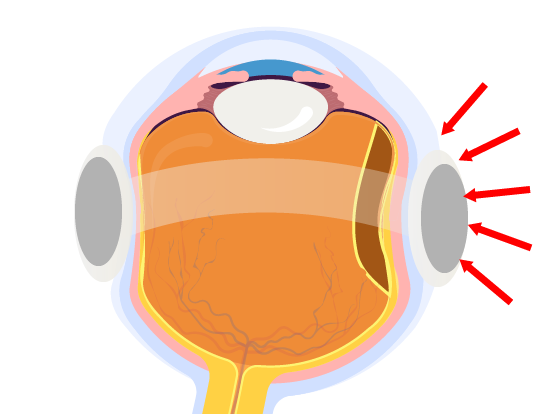
Caution
Retinal detachment is a very severe eye disease. If left untreated, patients are likely to lose their vision. Patients should seek medical attention as soon as possible if they notice any symptoms.

